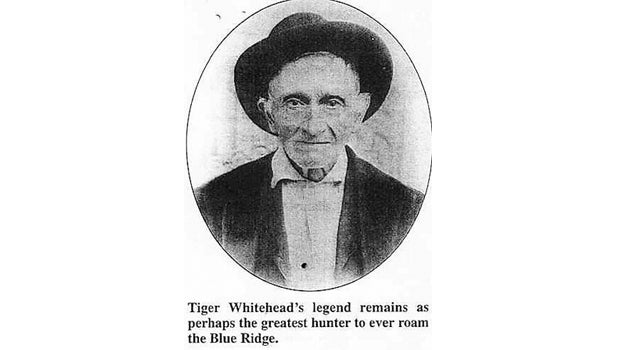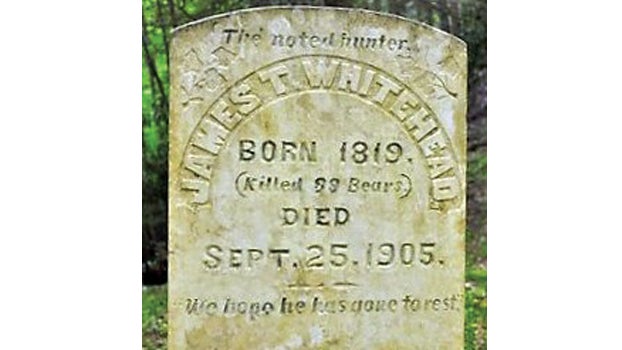East Tennessee Outdoors: James T. Whitehead
Published 8:34 am Thursday, May 16, 2019


Some have referred to our modern day as the ‘heyday of bear hunting in Tennessee.’
It is true that the bear populations are as high as they have been in a long time because of sound management practices and reasonable hunting seasons.
Today, however, has yet to create the bear-hunting characters that were here in the eighteenth and nineteenth centuries.
We can’t forget Daniel Boone coming through this area and writing on a tree’ D Bone cilled a bar on tree in the year 1763’, or that ‘Davy Crockett killed his first bear when he was only three’.
Nor do we have the bear hunting legends like James Tiger Whitehead.
Tiger Whitehead was born in 1819 and died in 1905. During his life, he lived more adventures than most people could hope to see in ten lives.
Tiger was a noted bear hunter of this area but he also hunted in Blount and Sevier Counties and during his life he created a legend that is unequaled.
One of the stories of Tiger’s legend occurred when he was bear hunting with his single-shot rifle he had named ‘Tick-licker’.
He shot a female bear and the single shot did not kill it. The bear charged Tiger so Tiger waited until the bear was within an arm’s length and he stuck the rifle barrel down the bear’s throat, pulled his hunting knife, and cut the bear’s throat.
The encounter left Tick-licker with the teeth marks of the bear indented into it.
Another time Tiger was carrying Tick-Licker as he walked down a street in Chicago. Tiger did not know that the town had a law against openly carrying firearms, and when a police officer tried to take his rifle from him, he fought back.
He later said, “when they accosted me, I commenced to prepare for battle.” After the misunderstanding was resolved, Tiger was placed on a train home to East Tennessee and his rifle was placed on the next train.
In his later life, some of his friends tallied up the number of bears he had killed and they said he had killed 99 bears.
On his death bed, his friends brought him a bear cub they had caught so he could kill it and make the number of bears killed an even 100.
He would not kill it, however, and told them he always gave everything a chance and it would not be fair to kill a caged bear cub.
You will find Tiger’s grave if you drive up Tiger Creek Road about a mile, park your car, and walk an old worn trail up onto a hill overlooking the surrounding mountains.
The gravestone tells the world that here lies ‘The Noted Hunter, James T Whitehead, Born 1819, Died September 25, 1905 (Killed 99 Bears). We hope he has gone to rest.’
The communities of Tiger Creek and Tiger Valley were named after him and a song was written and recorded about him by Johnny Cash.
It is said Cash wrote the song while sitting in his car after walking up to Tiger’s grave.
If you venture into those mountains on a moonlit night, you may see one of these mountain bears or even get a glimpse of the ghost of old Tiger still hunting for his 100th bear.
And what happened to the rifle Tick-liker?
A Roan Mountain resident, Paul Cates, bought it for ten silver dollars. He wanted to add it to his collection because of the bear teeth marks on the barrel helped tell the story of Tiger Whitehead.
He gave it to a local gunsmith to get the rust off the barrel and refurbish it. When he went to pick it up at the gunsmith, he discovered the gunsmith had cut the end of the barrel off to make the gun look better.
He had cut off the part of the barrel that had the teeth marks. He had ruined old Tick-licker forever.







